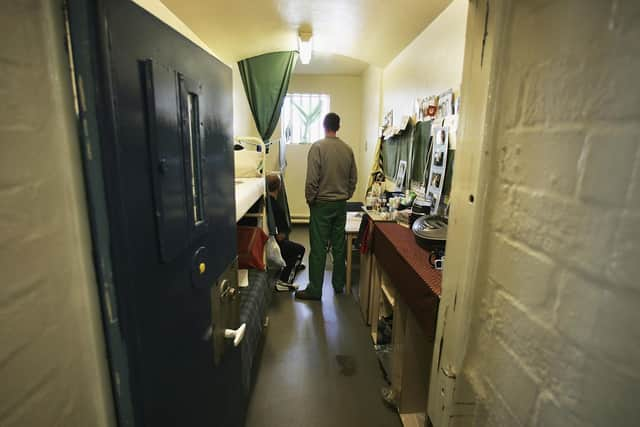Norway has ditched the word 'prison'. Scotland should think about doing the same – Karyn McCluskey
There are words I hate hearing, like “n*d”, which I'd prefer not to spell out, and toxic language around those who have an addiction to drugs – words I won’t use. Shifting the language, can shift understanding and reduce stigma. It seems like a small but important thing.
I listened to some colleagues from Norway talk about how they focus on rehabilitation in their system. They look at positive relationships when someone has their liberty removed and the ability to perform meaningful work. They have a mechanics workshop in the establishment and people from the community bring their cars in to be fixed, and so much more.
Advertisement
Hide AdAdvertisement
Hide AdI was struck not by the variety of meaningful work that was done in the establishments, impressive as it is, but on something rather more mundane but interesting. They didn’t use the term ‘prison’ but instead they used ‘corrections’. It sounds rather Orwellian, akin to the Ministry of Truth and keeping people imprisoned ’til they learn to love Big Brother. However the term ‘corrections’ suggests something more active than passive, it conveys change.
The etymology of the word ‘prison’ has interesting roots in old English ‘prisoun’, meaning a place of confinement or involuntary restraint, dungeon or jail. An early 14th-century description of the verb form was “to imprison, shut up in a prison, restrain from liberty”, literally or figuratively. The word jail or gaol has an even older history. We have moved some way from that in our thinking and practice. The element of custody is one facet of a complex role so I wonder if the word ‘prison’ is a term that’s had its time. What could we use instead if rehabilitation is at the heart of justice?
Whilst we remove people’s liberty for crimes where great harm has been caused and where the risk of harm may still exist, or as punishment, we recognise that people will eventually be released. We hope, indeed expect, that they will emerge changed people. Our parole decisions, programmes inside prison and so many other supportive elements to help people address addictions, dangerous behaviour and thought patterns are all designed to help people come out better and not worse. At least, that is the intention.
Rehabilitation is at the core of our intentions, despite the fact that, in truth, during Covid and indeed before, inspection regimes have lamented the lack of meaningful work opportunities and the ability for people to engage in many of the programmes and support needed to ensure a level of successful reintegration into society.
As a term, rehabilitation has always had its challenges – as so many people, for a multitude of reasons, have never had the most basic skills and support in the first place to be able to make their way in life, so how can you ‘re’ habilitate?


Perhaps we have to name something properly, to achieve it? I know our prisons do an important job in custody – the 14th-century idea of confinement – yet the active idea of change and support is critical.
Karyn McCluskey is chief executive of Community Justice Scotland